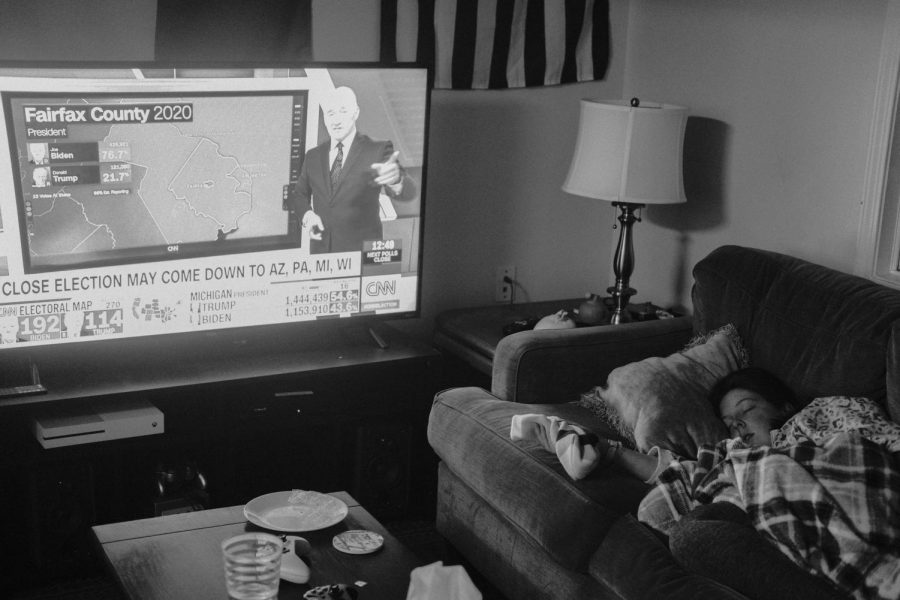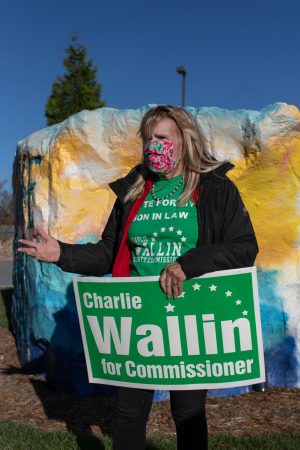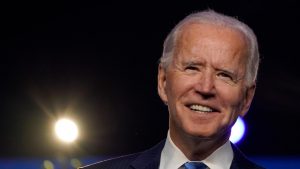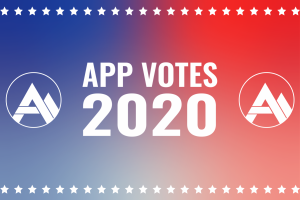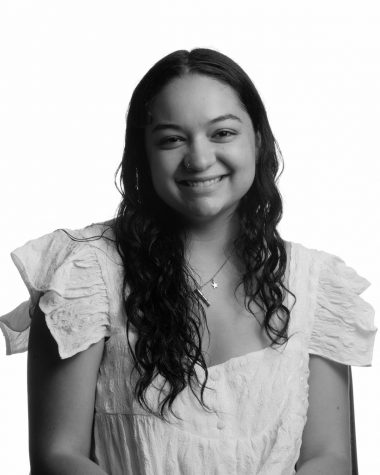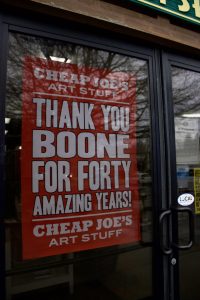App State students react to election results in a year like no other
An App State student takes a break around 2 a.m. after a long night of tracking polls on Election Day at a student watch party.
November 13, 2020
App State’s campus this election year saw a heavy political climate. Take one step on App State’s campus and you’ll see all sorts of candidate signs ranging from local to national offices. There’s also a chance you were questioned about your voter registration outside the library sometime this fall.
On Nov. 7, the Associated Press called the presidential race for former Vice President Joe Biden, who surpassed the 270 electoral votes needed after winning Pennsylvania.
College students are often a sought-after demographic for political candidates and their campaigns. NextGen North Carolina found that Gen Z and millennial voters make up 28% of the total early voter turnout in the state.
From Mike Pence’s visit to Boone to student athletes’ initiative for voter registration, App State students took advantage of the many opportunities they had to weigh voting options this fall.
Freshman Greta Wagner said that she is content with “settling” for Biden as president, but isn’t his biggest fan.
“I think that neither party presented that great of a candidate, but personally I am very happy that Trump did not win,” Wagner said. “We don’t need four more years of a mess like that.”
After Elizabeth Warren and Bernie Sanders each left the ticket for the Democratic presidential candidate, their supporters started a grassroots organization, Settle for Biden. According to its website, Biden isn’t the group’s first choice. But, its members will do anything to get President Donald Trump out of office.
Some students are confident in Biden’s presidency, such as Will Kramton.
Kramton said he’d been worried about COVID-19, human rights and criminal justice reform under Trump.
“I’m really happy with the results,” Kramton said. “These last four years have been rough. I feel good about the future and I think it’ll go well.”
The president-elect has already preempted some of his initiatives just days after winning the election.
On Nov. 9, the Biden-Harris transition team announced the formation of a COVID-19 advisory board. Members of the board include various infectious-disease researchers and former public-health advisers — a decision mentioned in the administration’s COVID-19 plan.
On the other end of the political spectrum, sophomore Connor Davis did not show support for Biden.
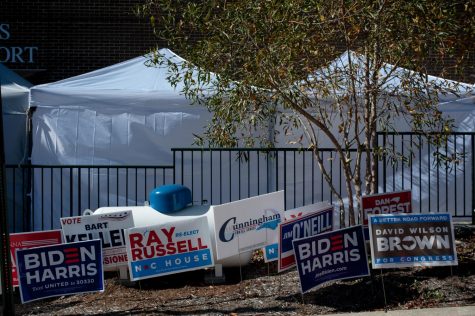
Davis, a Christian and conservative republican, said she will always pray for the country and the president.
“I think the media has brainwashed American citizens into thinking America under Trump’s control is a horrible place to be, when in fact America is one of the most privileged countries in the world,” Davis said.
Davis said that if Biden wins the election, which the AP, CNN and the New York Times project as he has enough electoral votes, she will still respect him as a president.
Sophomore Ronnie Pugh is in favor of Biden-Harris and their plans for their term.
For Pugh, Harris being the first Black female vice president is important to him as a Black man.
“I don’t really like Trump and I really don’t like Biden either, but I feel like under Biden and Kamala we’re gonna be really good for the next four years,” Pugh said.
With Black at App State’s presence this year, political issues affecting Black people and people of color weigh heavily on many students’ minds at App State.
On Nov. 5, Wellness and Prevention Services, the Multicultural Center and Phi Beta Sigma Fraternity, Inc hosted a Post-Election Connection to serve as a post-election debrief.
Students spoke to each other about their opinions on the election results and about their feelings for the future.
Imani Dillon, graduate assistant for the Multicultural Center, co-hosted the event. She said she felt that most Black students would participate in election dialogue on their own, so she wanted to extend the invitation to everyone.
At the time of the event, the election results were unknown, which resulted in a lot of uncertainty in the dialogue.
“People were just really fearful. So we used that time to hear everyone’s concerns and also talk about resources and coping skills that people can use.”
Dillon said it felt good to know that others shared the same anxieties as her about the election results.
This article was updated to reflect the percent of turnout was for early voting and not total voter turnout.

